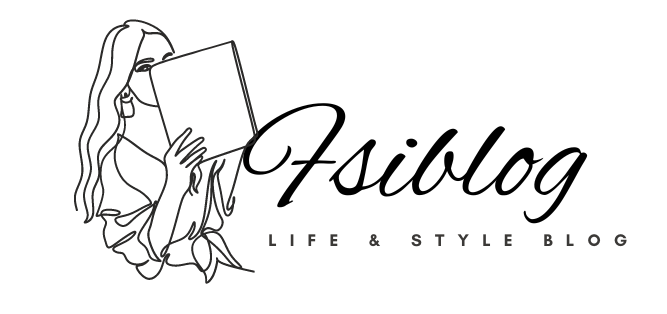Health is neither a sprint nor a maze of fast solutions. It requires steady action, not startling jumps. Evidence mounts: daily decisions become habits that define physical and mental health. A healthy lifestyle includes a balanced diet, regular exercise, and measured breaks. Though often discussed, intention alone rarely leads anywhere, even with discipline. The way is more straightforward with accountability. Long-term wellness takes time. Knowing that decisions matter and affect the future self shapes it. Quick wins rarely last.
Small Steps, Big Impact
- People want stable, responsible habits to foster well-being. Carefully chosen and used cannabidiol can help calm, recoup, and balance daily life. Consumers make confident choices with clear information and quality standards. Assess providers like High N Supply (highnsupply.co.uk) for legal sourcing, third-party testing, and transparent labelling. Choose based on dosage, ingredient origin, and product consistency to achieve your personal goals and adopt a sustainable wellness approach.
Power of Routine
- Inconsistency sabotages recovery faster. Fortnightly gym visits and wilting vegetables in the fridge are symptoms, not remedies. Regularly performing simple tasks can transform both bodies and minds. Is it intriguing? No, indeed. Yet rest, water, and nutrition provide a foundation no other can match. The proof is clear. Repeating small activities makes them automatic. Avoiding innovation and sticking to what works is key—underrate boredom. Wellness is about predictability and discipline, consistently prioritizing stability over excitement.
Information Overload: Choosing Wisely

- Never before has there been so much advice and so many conflicting opinions. One headline shouts about sugar. The next warns about fat. Social media piles on confusion. The result? Paralysis. Most people freeze. Here’s the antidote: critical judgment. The best choices emerge from questioning the source, verifying the science, and filtering out the noise. Change must not be driven by panic or fear but by facts. Who profits from pushing this trend? Does this advice hold up outside a glossy magazine? There are only a few questions, but they filter out nonsense. Responsible choices begin with scepticism and end with actionable, sensible steps.
Wellness as a Lifelong Investment
- Short-term remedies tempt everyone. A cleanse, a strict diet, or an unconventional idea that promises results next week are all tempting options. Slowly, the consequences mount. Responsible choices may not be flashy, but they grow in value over time. Long-term health requires commitment. Strength comes from overcoming obstacles and sticking to basics rather than trends. Every wise choice adds up. Though overlooked, constancy is beautiful. Daily responsibility pays off like no shortcut. The future belongs to prudent choices, steady action, and strength above speed.
Conclusion
Permanent wellness must be earned; it isn’t something that is ‘given away’.. Sometimes, dull yet thoughtful judgments are made despite distraction and pressure, creating them. The actual issue persists, not starts. This persistence requires responsibility, learning, and guidance. Nobody wakes up healthy by chance. It takes a thousand modest steps in the right direction to climb. Human nature remains constant despite trends. What is the wise approach? Keep it simple, honest, and consistent to achieve a sense of well-being.
References
- Rebar, A. L. (2025). Daily actions are driven by habit rather than conscious choice. University of South Carolina, Arnold School of Public Health. Retrieved from https://www.sc.edu/study/colleges_schools/public_health/about/news/2025/habits_research_rebar_hpeb.php
- News Medical. (2025, September 21). Daily actions are driven by habit rather than conscious choice. Retrieved from https://www.news-medical.net/news/20250921/Daily-actions-are-driven-by-habit-rather-than-conscious-choice.aspx
- IE University Center for Health and Well-Being. (2024). The science behind building habits: How to make healthy choices that stick. Retrieved from https://www.ie.edu/center-for-health-and-well-being/blog/the-science-behind-building-habits-how-to-make-healthy-choices-that-stick/
- Northwestern Medicine. (2023). The health benefits of having a routine. Retrieved from https://www.nm.org/healthbeat/healthy-tips/health-benefits-of-having-a-routine
- Swarbrick, M. (2017). A wellness approach. Psychiatric Rehabilitation Journal, 40(3), 326–328. Retrieved from https://pmc.ncbi.nlm.nih.gov/articles/PMC5508938/
- Buettner, D. (2024). Blue Zones: Longevity lessons from the world’s healthiest people. Real Simple Magazine. Retrieved from https://www.realsimple.com/blue-zone-longevity-tips-11832359
- Thaler, R. H., & Sunstein, C. R. (2021). Nudge: Improving decisions about health, wealth, and happiness. Penguin Books.
- Kahneman, D. (2013). Thinking, fast and slow. Farrar, Straus and Giroux.
- Harvard Health Publishing. (2024). The power of small steps: How tiny changes can lead to better health. Harvard Medical School. Retrieved from https://www.health.harvard.edu/
- ArXiv. (2025). Building healthy habits through micro-interventions: A behavioral approach to well-being. Retrieved from https://arxiv.org/abs/2508.09312

